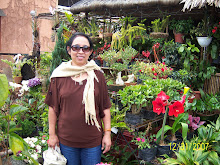RECOMMENDATION: Please read this book too if you have the chance. You might have your
own analysis in relation to the life you have lived and living for the
moment.
TITLE of the BOOK: Ethics of the New Millenium
AUTHOR: His Holiness, The Dalai Lama (Tenzin Gyatso)
ANALYSISMy Insights Gained:
a) All human beings doesn't like suffering and every person wants to ba happy.
b) Negative thoughts bring negative deeds.
c) Each person is responsible for his fellow being.
d)Happiness could best be attained through spirituality.
e) for everything that happened- there are really causes.
f) Every human being exist in relation to others.
g) I am my brother's keeper.
h) Not one event is independently occurring, instead it is dependently originated.
i) Discernment and commitment is necessary in order for a person to attain happiness.
j) Overall state of heart and mind constitute the behavioral manifestation of every human being.
k) the advances of science and technology has contributed much to the suffering of people.
"Every human being exists in relation to others"
No man is an island. I need my brother/sister in order to survive in this world. Inspite of the advances in science and technology, I still need the warmth of my fellow individual. Besides, I could not consider myself as a SELF if there are no OTHERS. Thus, the SELF is relative.
Now, it is a universal truth that all human beings doesn't like suffering and every person wants to be happy. Hence, if my-SELF wants to seek happiness, it is also the same with OTHERS. But happiness can only be attained if we have genuine peace of mind. And, peace of mind can only be possible if we have fruitfully enhanced and developed the qualities of the human spirit. Spirituality is the best means to attain happiness.
If SELF and OTHERS are relative, thus- I could safely say that I am my brother's keeper. I am responsible for his happiness much as I am responsible for mine. Responsibility towards SELF and OTHERS makes us careful
in every act we do in order not to cause suffering for others because all of us desire happiness. And, it would be unethical to disregard OTHER's desire for happiness in relation to mine.
Relating this insight to the organizations where we work - we would then say that the employees as well as the management are dependently originated. The organization is not dependent from the management and employees. Every person in the organization is responsible for keeping their vision. The principle of mutual dependence is ever existent.The success of the organization is the responsibility of every employee. And, the organization is responsible for the success of the employees.
Abraham Maslow's Hierarchy of Needs, when satisfied by the organization will result to the happiness of the employee. then a satisfied employee will perform his best, thus, making the entire organization happy of their performance as a whole
.
Frederick Herzberg's Hygiene theory caters mostly to the satisfaction of the inner self which can be equated with the development of the qualities of the human spirit. The responsibility that the work has - motivates a person to develop the qualities of compassion for the work, patience and humility for the people the person works with.
CONCLUSION:
The ethics of the new millenium originates from the bible. Compassion, humility, patience, love, forgiveness and frugality. Aren't these the virtues of Jesus Christ? Hence, inspite of the technical advances in science, let us always go back to the basics.
Let us treat our neighbors the way they wanted to be treated. And that is, with respect. Let us always remember that every person is made into the image and likeness of God. Hence, let us not corrupt one another. But let us not be naive in the realities of life. Let us always consistently remember not to let material things rule our lives. This is difficult - but let us commit ourselves to shun away excessive want of things in this world. Let us gradually shift our focus to one that is eternal.
